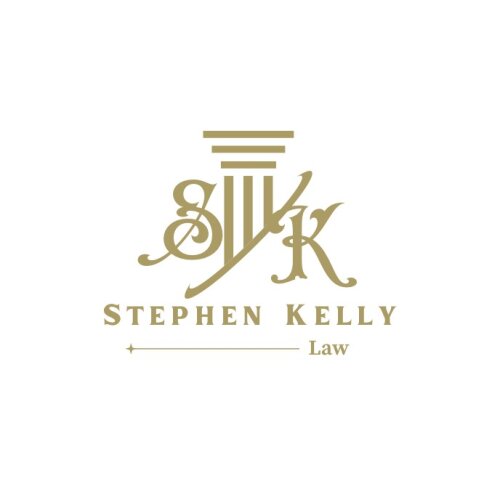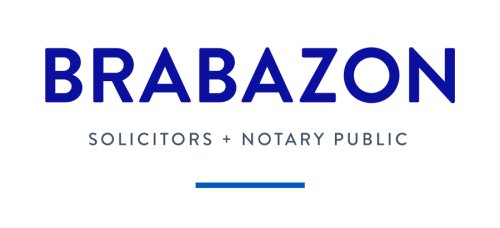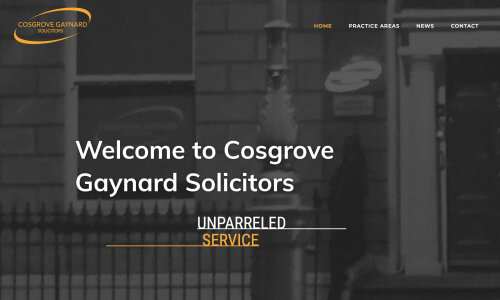Best Housing, Construction & Development Lawyers in Dublin
Share your needs with us, get contacted by law firms.
Free. Takes 2 min.
Free Guide to Hiring a Real Estate Lawyer
List of the best lawyers in Dublin, Ireland
About Housing, Construction & Development Law in Dublin, Ireland
Housing, Construction & Development Law in Dublin, Ireland encompasses a range of legal issues that arise in the development, building, and occupation of residential, commercial, and industrial properties. This legal field includes regulations on land use, zoning, planning permissions, construction standards, landlord and tenant relations, and environmental compliance. It aims to ensure that development projects meet safety standards, preserve community welfare, and promote sustainable growth in Dublin.
Why You May Need a Lawyer
Individuals and businesses may require legal help in Housing, Construction & Development for several reasons:
- Property Disputes: Conflicts over property boundaries, ownership rights, or lease agreements.
- Planning Permissions: Navigating applications for planning permissions, or dealing with planning refusals and appeals.
- Construction Issues: Disputes involving contractors, construction defects, or building regulations.
- Landlord and Tenant Law: Issues with rental agreements, eviction procedures, or tenant rights.
- Development Projects: Legal support in large-scale development projects, including compliance with zoning laws and environmental regulations.
- Financing and Contracts: Drafting and reviewing deeds, mortgages, and construction contracts to ensure legal fairness and compliance.
Local Laws Overview
Key aspects of local laws that are particularly relevant to Housing, Construction & Development in Dublin include:
- Planning and Development Acts: These laws govern the planning and development processes, including obtaining and complying with planning permissions.
- Building Control Regulations: Ensure that new builds and renovations comply with safety, health, and welfare standards.
- Residential Tenancies Act: Protects the rights of tenants and landlords, outlining rules for renting residential properties.
- Environmental Protection Acts: Regulations that developers must follow to mitigate the environmental impact of their projects.
- Local Government Planning and Development Regulations: Provide detailed guidelines on planning applications, public consultations, and development contributions.
Frequently Asked Questions
What is the process for obtaining planning permission in Dublin?
You need to submit a planning application to the local planning authority, which includes detailed plans and specifications of the proposed development. The application is reviewed, and a decision is typically made within eight weeks. Public notices and consultations may also be required.
How are landlord and tenant disputes resolved in Dublin?
Disputes can be addressed through the Residential Tenancies Board (RTB), which provides mediation and adjudication services. Legal action in courts may be necessary for more serious conflicts.
What are common issues in construction contracts?
Common issues include unclear scope of work, payment schedules, project delays, variations in work, and compliance with health and safety standards.
Do I need an environmental impact assessment for my development project?
Large-scale developments or projects likely to have significant environmental effects generally require an Environmental Impact Assessment (EIA) as mandated by EU and local laws.
What can I do if my planning permission is refused?
You can appeal the refusal to An Bord Pleanála within four weeks of the decision. An Bord Pleanála is the independent national planning appeals board.
How do building regulations impact my construction project?
Building regulations set standards for design, construction, and alterations to ensure safety, health, and energy efficiency. Non-compliance can result in legal penalties and project delays.
What are my rights as a tenant in Dublin?
Tenants have the right to a rented property that meets minimum standards, proper notice before eviction, protection from unfair rent increases, and the right to stay in the property for a minimum duration unless breach of tenancy occurs.
How do I handle a boundary dispute with my neighbor?
Initially, try to resolve the dispute amicably. If unsuccessful, you may need to hire a surveyor for clarification and seek legal advice for potential mediation or litigation options.
What is involved in a conveyancing process?
Conveyancing involves the legal transfer of property ownership from seller to buyer. It includes drafting contracts, conducting searches, and ensuring all conditions of sale are met before the completion.
Can I change the use of my property without planning permission?
Changing the use of a property usually requires planning permission, especially if it impacts the general character of the area. Exceptions may apply to certain minor changes, but it’s best to consult the planning authority.
Additional Resources
Here are some useful resources for those seeking further assistance or information:
- Residential Tenancies Board (RTB): Provides information and dispute resolution services for landlords and tenants.
- An Bord Pleanála: The independent national planning appeals board for reviewing planning decisions.
- Local Authorities (e.g., Dublin City Council): Responsible for local planning and development, including issuing planning permissions.
- Citizens Information: Offers comprehensive information on housing and property issues.
- Law Society of Ireland: Provides resources to find solicitors who specialize in housing, construction, and development law.
Next Steps
If you need legal assistance in Housing, Construction & Development, consider the following steps:
- Identify Your Needs: Clearly define the legal issues you are facing or the legal advice you require.
- Research and Choose a Lawyer: Look for a solicitor specializing in housing, construction, and development law. The Law Society of Ireland can be a starting point.
- Prepare Documentation: Gather all relevant documents, such as contracts, correspondence, plans, and any evidence related to your case.
- Consultation: Schedule a consultation with your chosen lawyer to discuss your case in detail and determine the best course of action.
- Follow Legal Guidance: Proceed with the legal strategy outlined by your lawyer, whether it involves mediation, negotiation, or litigation.
By following these steps, you can navigate the complex legal landscape of Housing, Construction & Development with greater confidence and effectiveness.
Lawzana helps you find the best lawyers and law firms in Dublin through a curated and pre-screened list of qualified legal professionals. Our platform offers rankings and detailed profiles of attorneys and law firms, allowing you to compare based on practice areas, including Housing, Construction & Development, experience, and client feedback.
Each profile includes a description of the firm's areas of practice, client reviews, team members and partners, year of establishment, spoken languages, office locations, contact information, social media presence, and any published articles or resources. Most firms on our platform speak English and are experienced in both local and international legal matters.
Get a quote from top-rated law firms in Dublin, Ireland — quickly, securely, and without unnecessary hassle.
Disclaimer:
The information provided on this page is for general informational purposes only and does not constitute legal advice. While we strive to ensure the accuracy and relevance of the content, legal information may change over time, and interpretations of the law can vary. You should always consult with a qualified legal professional for advice specific to your situation.
We disclaim all liability for actions taken or not taken based on the content of this page. If you believe any information is incorrect or outdated, please contact us, and we will review and update it where appropriate.














